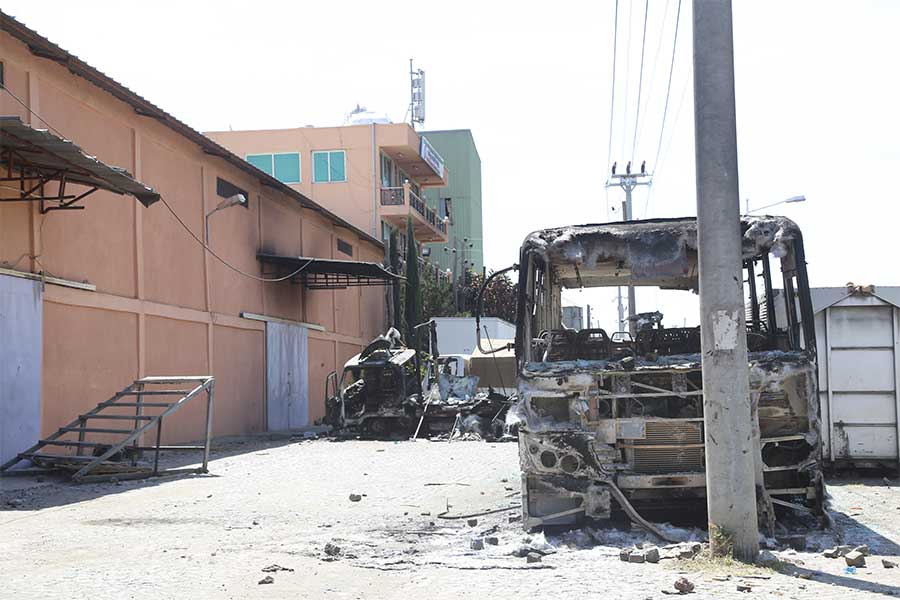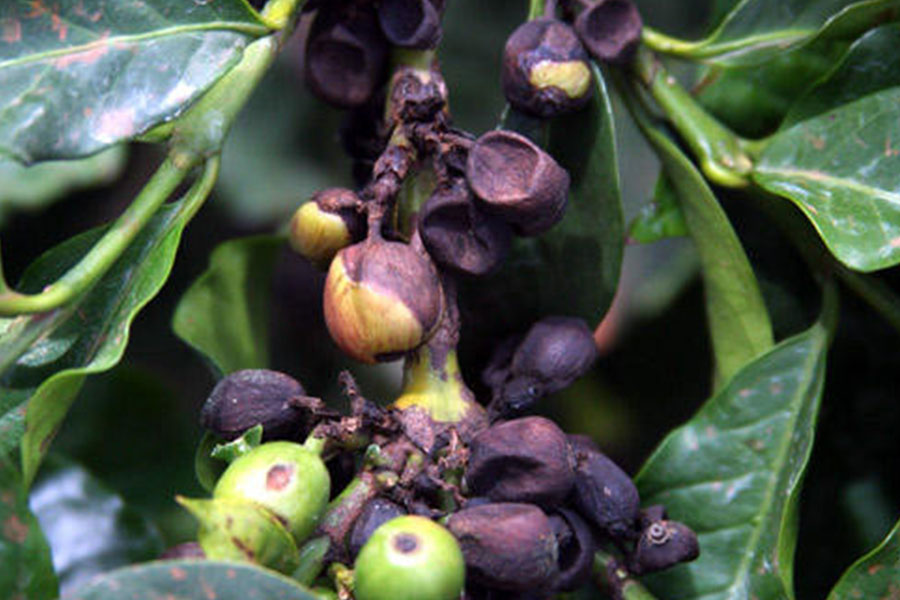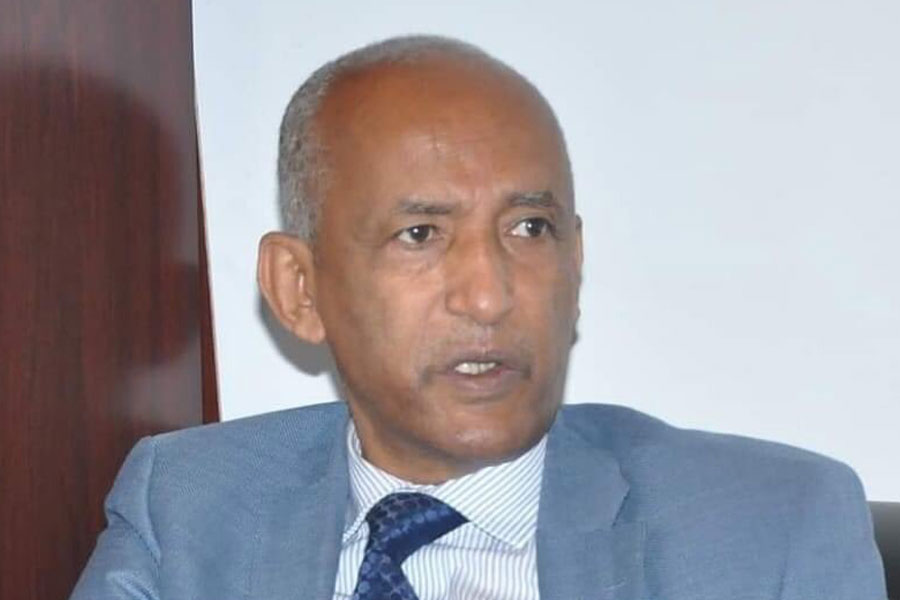
Jun 8 , 2024
By Hippolyte Fofack
In December 2019, a group of patients in Wuhan, China, started showing symptoms of an atypical pneumonia-like illness that did not respond well to standard treatments. Ninety days later, with more than 118,000 cases reported in 114 countries and 4,291 deaths, the World Health Organization (WHO) declared COVID-19 a pandemic.
While COVID-19 lockdowns and travel restrictions brought the world to a standstill, decision-makers’ responses to the evolving crisis, including in high-income countries, betrayed serious information gaps and institutional shortcomings that prevented them from taking decisive action. Thousands, if not millions, of deaths and much economic devastation could have been averted. As early as 2007, researchers at the University of Hong Kong discovered that “horseshoe bats are the natural reservoir for SARS-CoV-like virus” and that “civets are the amplification host.”
The authors warned that human-wildlife interactions in farms and wet markets could act as sources and amplification centres for emerging pathogens.
Yet public health systems were caught unprepared by COVID-19, which brutally exposed the inadequacy of existing pandemic-response capabilities. The crisis overwhelmed supply chains and procurement mechanisms for essential medicines and supplies, straining many national health systems beyond their limits.
Meanwhile, many richer industrialised countries embraced vaccine nationalism and hoarding, leaving many regions without access to life-saving treatments and calling into question established principles like global solidarity and multilateral cooperation. By challenging long-held assumptions about localised viral epidemics such as Ebola and yellow fever, especially in Africa, COVID-19 also underscored the need for a nuanced understanding of pandemics’ potential impact on different regions.
Governments must adopt a more thoughtful and proactive approach to pandemic preparedness to address these challenges. In 2018, the WHO warned that an unknown pathogen (“Disease X”) could trigger a global pandemic, urging global policymakers to invest in vaccine research and development. While COVID-19 marked the world’s first encounter with a “Disease X” scenario, the accelerating pace of climate change and human encroachment on wildlife habitats significantly increase the risk of exposure to more deadly pathogens.
That is why leading experts, believing it is only a matter of time before the world faces another pandemic, emphasise the importance of strategic planning and decisive action.
But how can health systems in resource-constrained countries and regions prepare for and respond to a potential “Disease X” scenario?
Strengthening disease surveillance systems is crucial to detecting and responding effectively to emerging epidemics. Given that human interactions and movements facilitate the rapid spread of viruses, governments must establish agile and integrated tracing systems capable of processing numerous data streams and offering actionable insights. Policymakers can take several steps to improve disease surveillance.
First, they could bolster predictive models by harnessing emerging technologies such as machine-learning algorithms and artificial intelligence (AI) for data capture and analysis. Investing in training programs that develop analytical, communication, and advocacy skills could also help increase capacity. Governments could facilitate the integration of surveillance systems covering areas like veterinary health, weather forecasts, and border control. Lastly, establishing robust and resilient response systems requires well-defined public health contingency plans and dedicated resources.
Promoting global solidarity and coordination within and between established multilateral organisations such as the Africa Centre for Disease Control & Prevention (ACDCP), the European Union, and the WHO, and the World Bank is crucial for resource mobilisation. Bilateral and multilateral emergency preparedness drills, akin to those conducted by militaries worldwide, could further strengthen such partnerships.
Fortunately, policymakers do not have to reinvent the wheel. They can leverage the WHO’s Building Blocks framework to monitor and assess their national health systems. The data they collect could be used to design and implement necessary reforms, particularly in developing countries.
Throughout history, humanity has grappled with numerous pandemics, from the Antonine Plague of 165-180 AD to COVID-19. The WHO should be commended for sounding the alarm and urging the international community to prepare for a “Disease X” scenario. Policymakers must heed this warning and act now or pay a much higher price later.
PUBLISHED ON
Jun 08,2024 [ VOL
25 , NO
1258]



Viewpoints | Dec 14,2019

Commentaries | Jul 19,2025

News Analysis | Jan 05,2020

Fortune News | Nov 06,2021

Radar | Jun 18,2022

Radar | Aug 13,2022

Fortune News | Jun 10,2020

Viewpoints | Jun 01,2024

Verbatim | Aug 23,2025

Photo Gallery | 174002 Views | May 06,2019

Photo Gallery | 164231 Views | Apr 26,2019

Photo Gallery | 154328 Views | Oct 06,2021

My Opinion | 136611 Views | Aug 14,2021
Editorial | Oct 11,2025

Dec 22 , 2024 . By TIZITA SHEWAFERAW
Charged with transforming colossal state-owned enterprises into modern and competitiv...

Aug 18 , 2024 . By AKSAH ITALO
Although predictable Yonas Zerihun's job in the ride-hailing service is not immune to...

Jul 28 , 2024 . By TIZITA SHEWAFERAW
Unhabitual, perhaps too many, Samuel Gebreyohannes, 38, used to occasionally enjoy a couple of beers at breakfast. However, he recently swit...

Jul 13 , 2024 . By AKSAH ITALO
Investors who rely on tractors, trucks, and field vehicles for commuting, transporting commodities, and f...

Oct 11 , 2025
Ladislas Farago, a roving Associated Press (AP) correspondent, arrived in Ethiopia in...

Oct 4 , 2025
Eyob Tekalegn (PhD) had been in the Governor's chair for only weeks when, on Septembe...

Sep 27 , 2025
Four years into an experiment with “shock therapy” in education, the national moo...

Sep 20 , 2025
Getachew Reda's return to the national stage was always going to stir attention. Once...

Oct 12 , 2025
Tomato prices in Addis Abeba have surged to unprecedented levels, with retail stands charging between 85 Br and 140 Br a kilo, nearly triple...

Oct 12 , 2025 . By BEZAWIT HULUAGER
A sweeping change in the vehicle licensing system has tilted the scales in favour of electric vehicle (EV...

Oct 12 , 2025 . By NAHOM AYELE
A simmering dispute between the legal profession and the federal government is nearing a breaking point,...

Oct 12 , 2025 . By NAHOM AYELE
A violent storm that ripped through the flower belt of Bishoftu (Debreziet), 45Km east of the capital, in...